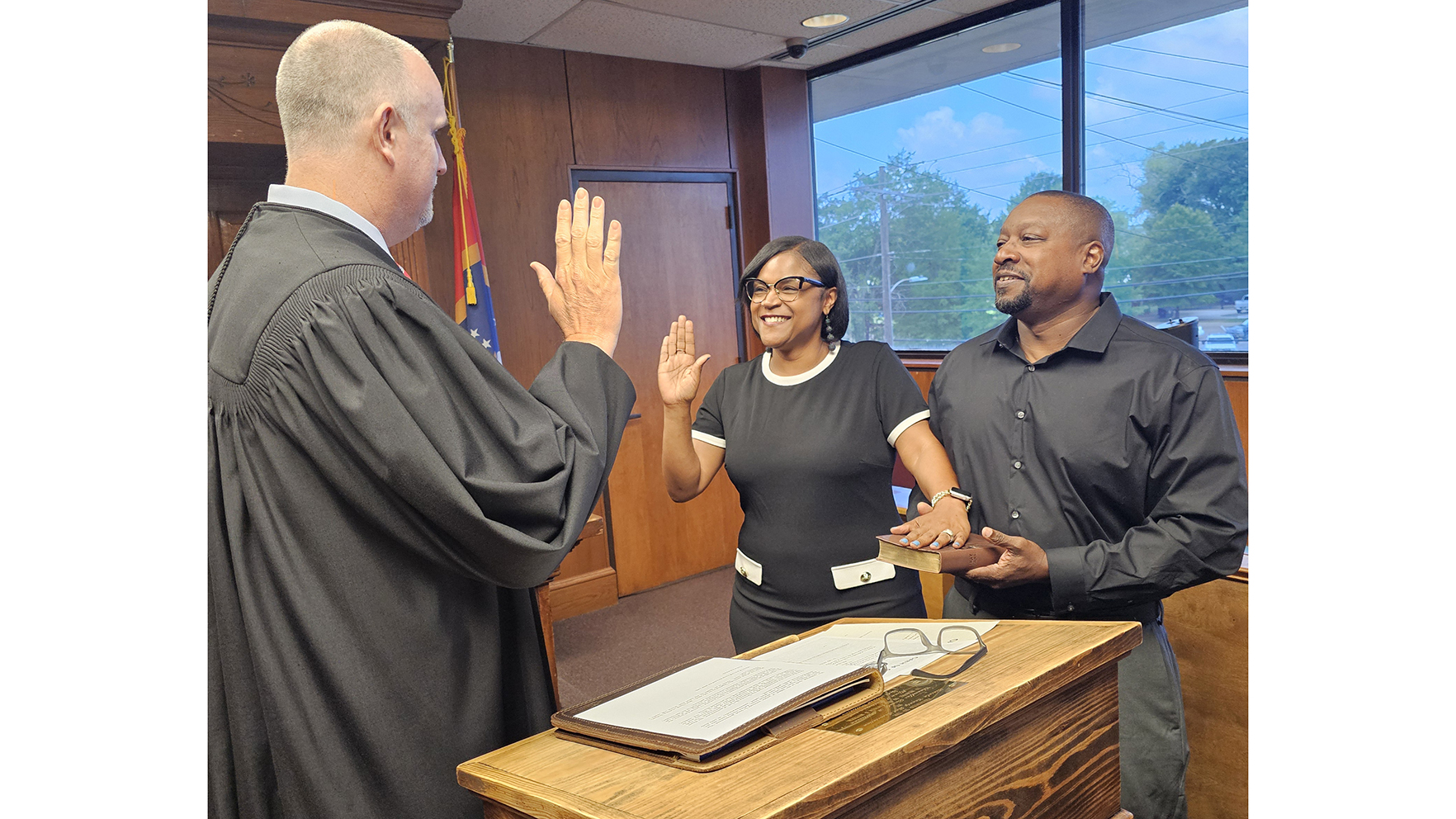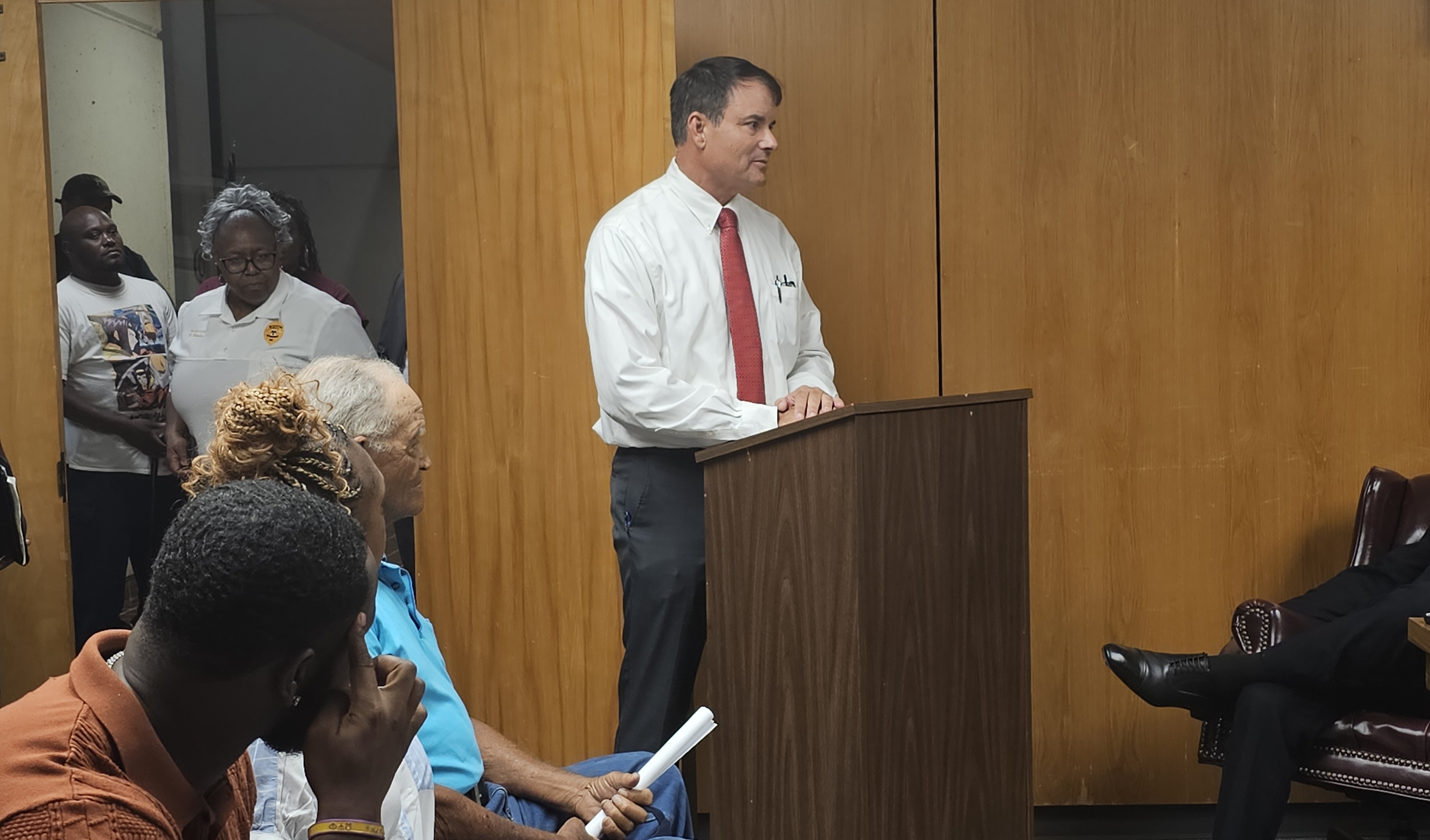Learning how to grieve
Published 11:28 pm Saturday, November 1, 2014
Lincoln County and the city of Brookhaven have seen much loss and misfortune in the past weeks.
As residents send out thoughts, prayers and good vibes to the family and friends who have lost loved ones, it is important that mental health and stability is seen as a priority in these times of grief. Whether one seeks help spiritually, professionally or in the form of support from family members and friends, understanding the subject of grief and grief counseling is paramount.
J. David Carter directs the counseling ministry that is provided at Easthaven Baptist Church in Brookhaven.
“Grief is a process, and each individual has an individual view of their grief,” Carter said. “Each individual has to handle their own grief.”
Brookhaven School District Superintendent Ben Cox spoke well of the measures the school district took to ensure the mental stability of its students.
“The students took advantage of the counseling offered and also took advantage of each other,” Cox said. “They had time to talk and to grieve.”
Cox said Brookhaven High School brought in professional counselors from Region 8, area ministers and youth ministers, the special education director and made use of the three counselors the school has on staff. Cox said they also used teachers and coaches.
“When we’re grieving we borrow some strength from the people around us,” David Mullins, director of Region 8’s Brookhaven Crisis Stabilization Unit, said.
Mullins is also a licensed marriage and family therapist. Mullins said having people around you helps during the grieving process whether it is family, friends or counselors.
“Often students have the closest connections with the teachers and coaches. They see them about everyday,” Cox said. “We allowed them to spend time with the students individually and in groups.”
Carter said in times of grief people will comfort one another but that most grieving support will come from peer support.
Brookhaven High School and Cox’s actions support what Carter said.
“Peers also played a role,” Cole said regarding the steps the school took to help their grieving students. “Academics took a back seat to give the students time to be together and move past the events.”
When dealing with grief, Carter, Mullins and the actions of the Brookhaven School District administration all attest that time is a huge factor. Time becomes a necessity as those who are grieving process their feelings.
“When we talk about grief, we talk about it in stages,” Mullins said.
Mullins said most people know grief has stages. Those stages are denial, anger, bargaining, depression and acceptance.
“However, most people move back and forth. It’s not a clear cut step from one to another,” Mullins said.
Mullins stressed that through each stage being able to support and understand the grieving person is important.
“A lot of times when a person experiences loss, they are in denial. It’s a kind of survival instinct,” Mullins said. “The loss becomes too much to bear but its important to remember there are people to turn to.”
Mullins said anger usually follows the denial stage, and it is born out of fear and hurt from the loss. Anger is where the grieving usually blames the individuals who they’ve loss or even blame God. “To be supportive,” Mullins said, “is to help those grieving understand that this is normal.”
“After anger comes bargaining, which sometimes takes the form of guilt and have the person grieving asking ‘if I wake up will this just be a bad dream’,” Mullins said.
After bargaining comes depression which Mullins said can last a long time.
“Listening to a person who is grieving is a lot better than trying to talk to them a lot.”
Then comes acceptance.
“Reaching the acceptance stage does not mean that the person is accepting everything is okay. It means accepting the loss has happened, and it’s adjusting to life after the loss,” Mullins said.
Although the existence of stages may lead one to assume the hurting stops once acceptance is reached, Carter said the opposite is true.
“Grief isn’t an island we go to. Nor do we feel comfortable when people keep asking if we are okay,” Carter said. “Hurt will come up. Someone can say something unintended and can cause hurt.”
Carter, who lost his own son, speaks from experience as well as education.
“The administration and school did a good job with allowing students to grieve,” Cox said.
He also acknowledges the importance of counseling for the schools staff as well.
“We worry about our students but tragedy also touches our staff. So it’s good they get to come together and help each other get past the events,” Cox said.
It is important to realize grieving is unavoidable.
“The biggest things people must know about grieving is understanding that people go through the phases and it is normal,” Mullins said. “Don’t minimize or try to give reasons why things happen and let those grieving experience their feelings.”
Mullins said it is common for people who are grieving to isolate themselves and shut themselves out.
“If we don’t let people know we are supportive and understanding, they are more likely to pull away from us.”
Loved ones must show love and understanding.
“We need to be accepting of individuals’ grief, let them know it is healthy to deny at first, to be angry and to ask the questions,” Mullins said.
He also said if a person doesn’t feel like they are progressing through the stages like they should from familial, friendly or religious support alone, they do need to turn to professional support. He wants those grieving to know there are people waiting and equipped to offer their support.
Through all of the unfortunate events that have happened in the region and whatever may happen one thing is apparent. Support from family members, friends, colleagues, religious leaders and professional services is a much needed and, fortunately, readily available resource in the Lincoln County area.





